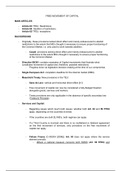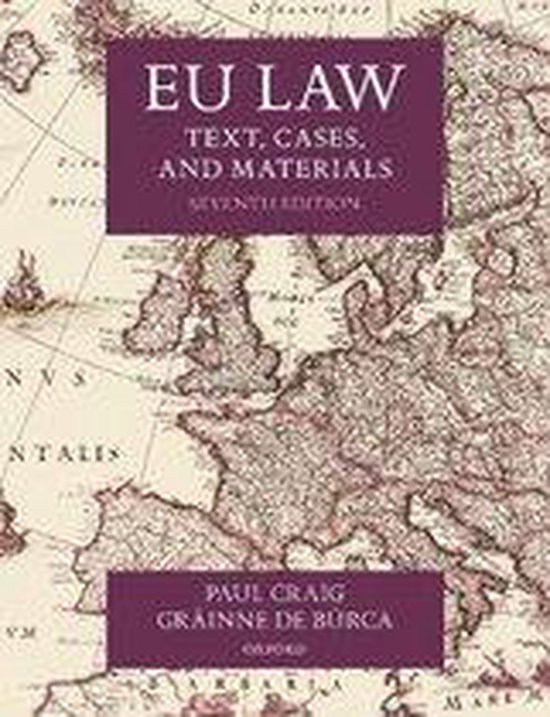Samenvatting
Summary European Union (EU) Law Masters (LLM): Free Movement of Capital Notes
In depth Masters module notes on the European Union (EU) law on the Free Movement of Capital. Including a step-by-step guide on how to answer a legal problem question for exams.
[Meer zien]






